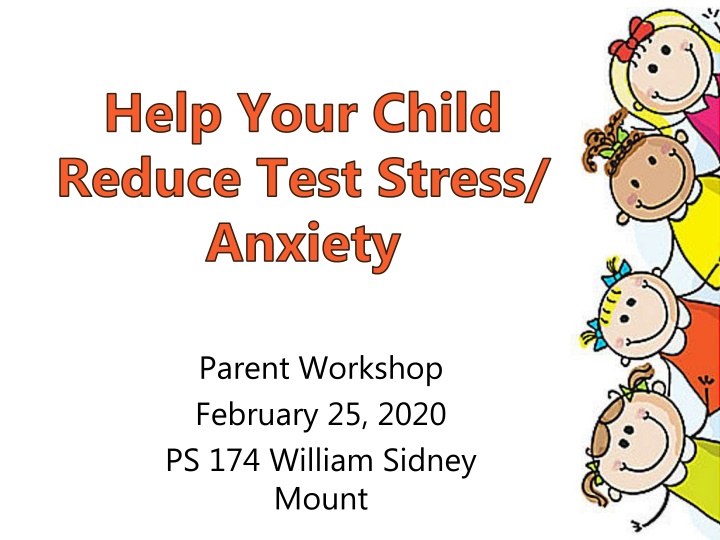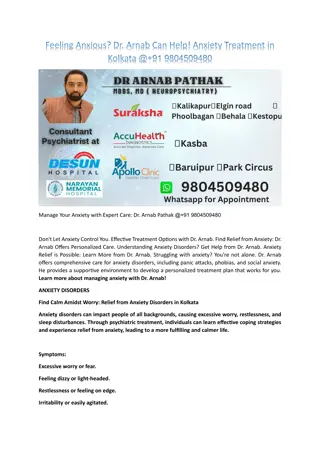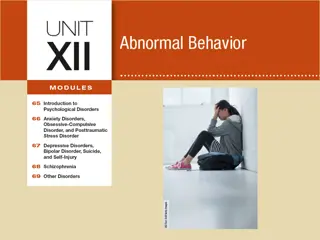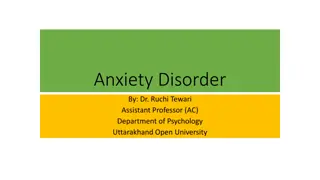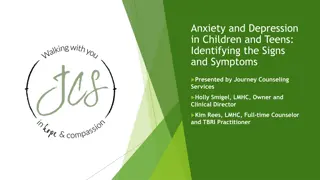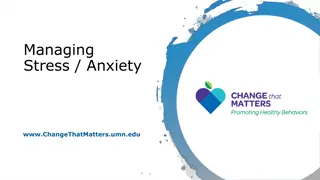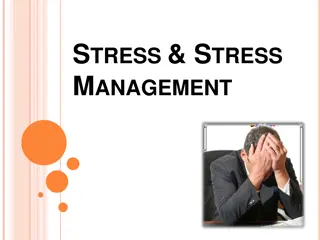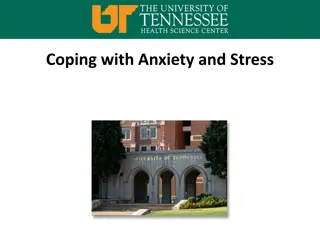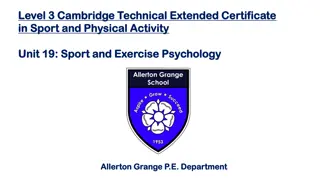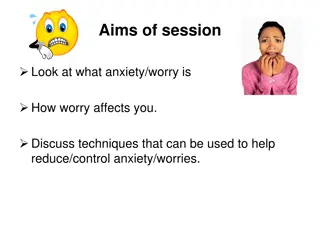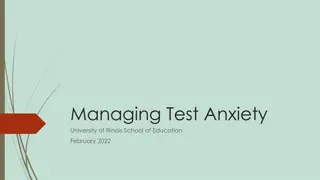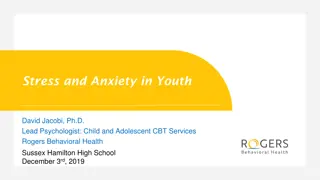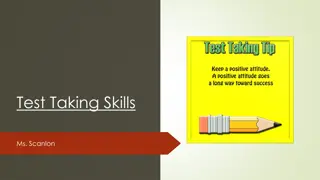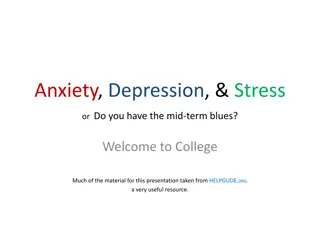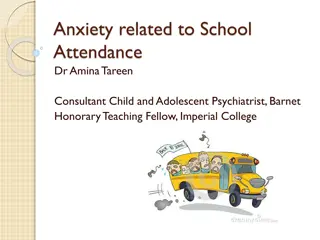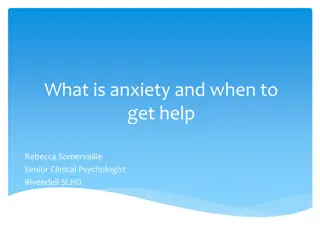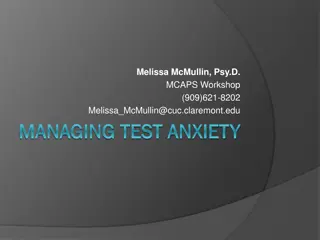Tips to Help Your Child Reduce Test Stress and Anxiety
Discover valuable insights on understanding and addressing testing anxiety in children, including causes, symptoms, and strategies. Gain practical tips to support your child before, during, and after tests, promoting a positive testing experience. Learn how to recognize when testing anxiety becomes problematic and explore ways to manage it effectively for improved test performance.
Download Presentation

Please find below an Image/Link to download the presentation.
The content on the website is provided AS IS for your information and personal use only. It may not be sold, licensed, or shared on other websites without obtaining consent from the author.If you encounter any issues during the download, it is possible that the publisher has removed the file from their server.
You are allowed to download the files provided on this website for personal or commercial use, subject to the condition that they are used lawfully. All files are the property of their respective owners.
The content on the website is provided AS IS for your information and personal use only. It may not be sold, licensed, or shared on other websites without obtaining consent from the author.
E N D
Presentation Transcript
Help Your Child Reduce Test Stress/ Anxiety Parent Workshop February 25, 2020 PS 174 William Sidney Mount
Agenda: Anxiety What is Testing Anxiety? Symptoms of Testing Anxiety Tips & Strategies the home before test during test
Anxiety? What is anxiety? Anxiety is a normal reaction to stress apprehension, tension, or uneasiness it helps you cope with tense situations. It is the body s natural response to stress. ADULT EXAMPLES: Job interviews, seeing a doctor, public speaking
What are some causes of anxiety in children? Separation Socialization Major life changes (divorce, moving, new school year, etc) Changes for normal day routines Social Media Grades
Testing Anxiety Testing Anxiety - involves apprehensions of performing at levels below those at which we d like to perform, or even apprehensions of failure. This type of anxiety may be a product of our underestimating our abilities to perform or of the resources we have available to help us to perform to our desired levels on exams. Conversely, exam anxiety may be a natural reaction to insufficient exam preparation.
What is testing anxiety sound like? My head feels like it s in a clamp. My stomach hurts. I m sweating. I studied this stuff yesterday, why can t I remember? I can t think! (After taking the test) As soon as I leave the test, I remember everything.
When testing anxiety become problematic 1. Test failure 2. Test anxiety High levels of Test Anxiety Interfere with your ability to Test- Anxiety Cycle 6. 3. Can t study effectively Interference with test performance Prepare for, Think about or Take an Exam. 4. Under- or un- prepared for exam 5. More test anxiety
Not a Bad Thing Please note: most of the time anxiety of a test is not a bad thing. It is a normal and natural response. Some physiological symptoms can be helpful: blood pumping, outburst of energy, mind races, etc. Some people say work well under stress
Tips & Strategies In the Home
Ways to Help Cognitive Emotional Physical
Cognitive Prepare Well: Overlearn the Material Practice good time management Space out your studying Avoid procrastination Eliminate cramming Use active study techniques Review regularly, short periods of time
Understanding Your Child's Learning Style Different learning styles Auditory Visual Tactile Other https://www.youtube.com/watch?v=c- JWFbww9OM
Emotional Practice relaxation techniques long and short Recite positive self-talk Use visualization Identify TA triggers and plan how they will cope with them Ex: Instructor announcing the time Consult a counselor if necessary Be patient!
The Power of Self Talk Preparation + the power of positive self-talk I am always calm and confident under pressure. I can do it! I am smart! I am an amazing person!
Physical Control Get exercise everyday Clear out the stress hormones! Do something you enjoy everyday Practice relaxation techniques regularly Avoid cramming the night before tests Get enough rest and proper nutrition Set up a calm study environment
Test Taking Skills Teach your child test taking strategies. Process of elimination Key words Come back later Plug in Flashcards Make studying a game
Tips and Strategies Before Test Time
Before the test Deep breath Focus on test and not what is going on around them Block out distractions Positive Messages Smile Be confident Relax, shoulder, neck roll Tighten fist, release Lucky pencil!
Tips and Strategies During Test Time
During test time If it starts to feel overwhelming
No Child Is The Same Each child has their own strengths. Praise is important. Acknowledge the effort.
Thank You! Questions? Please Take Handouts
